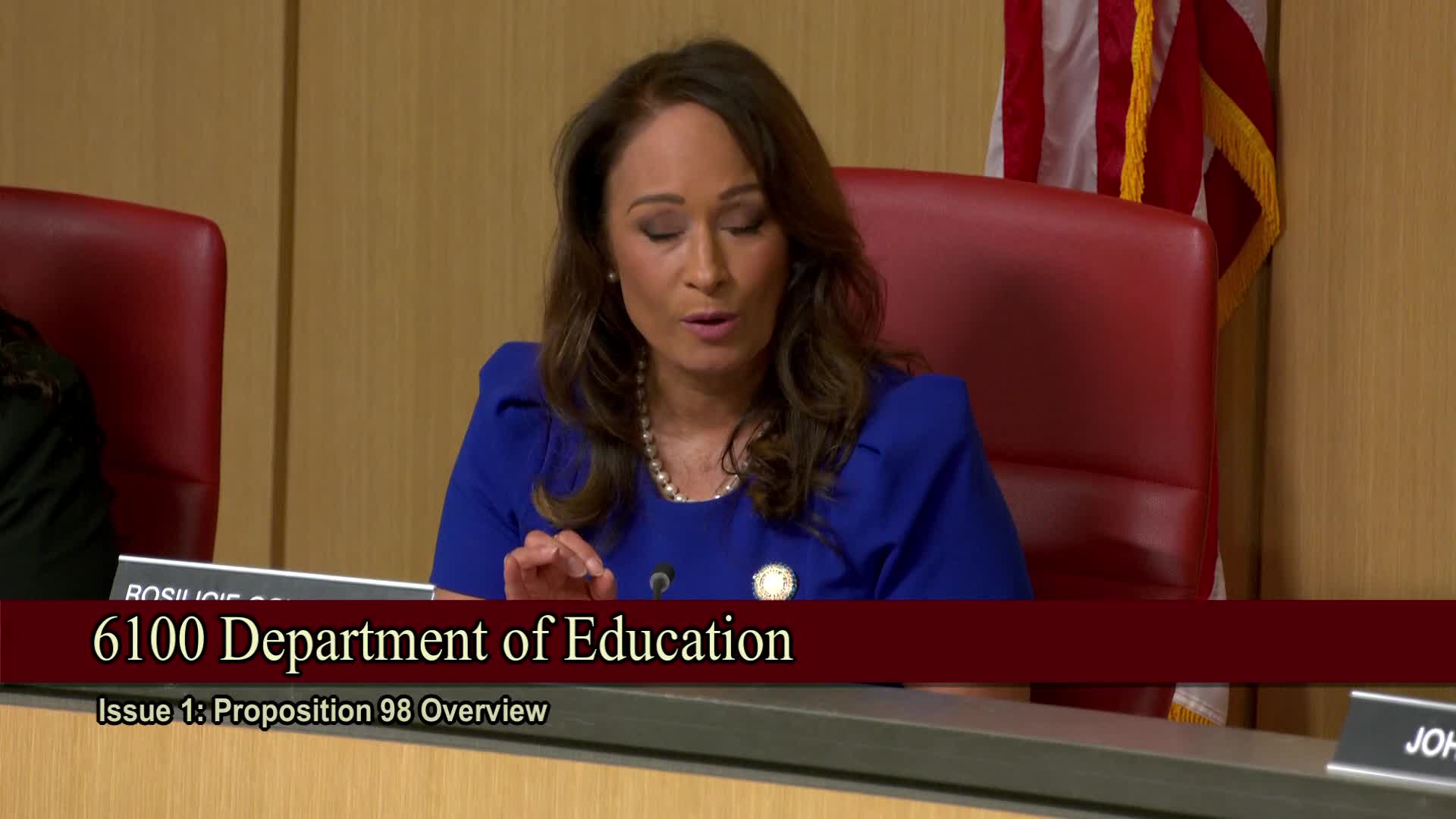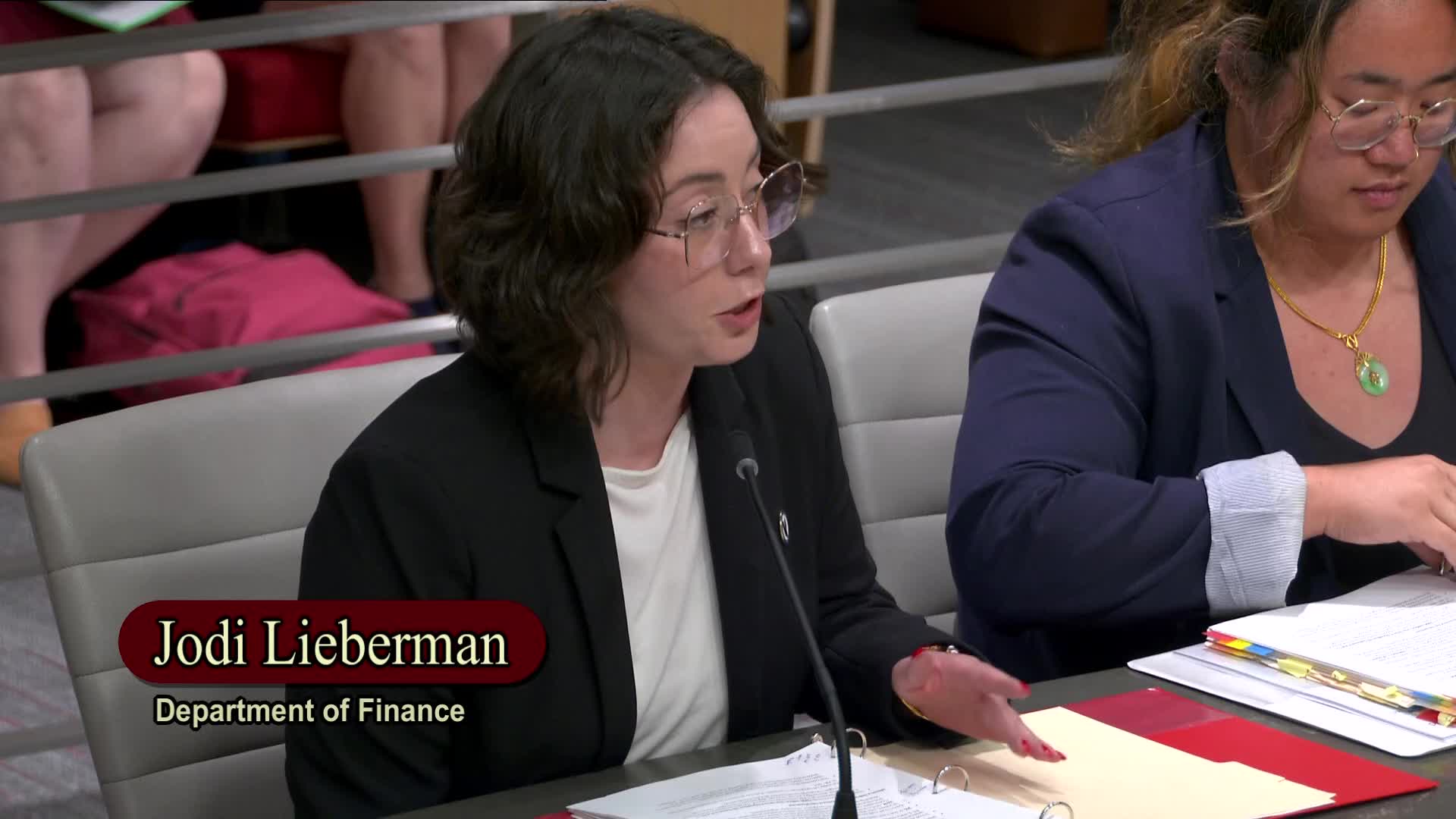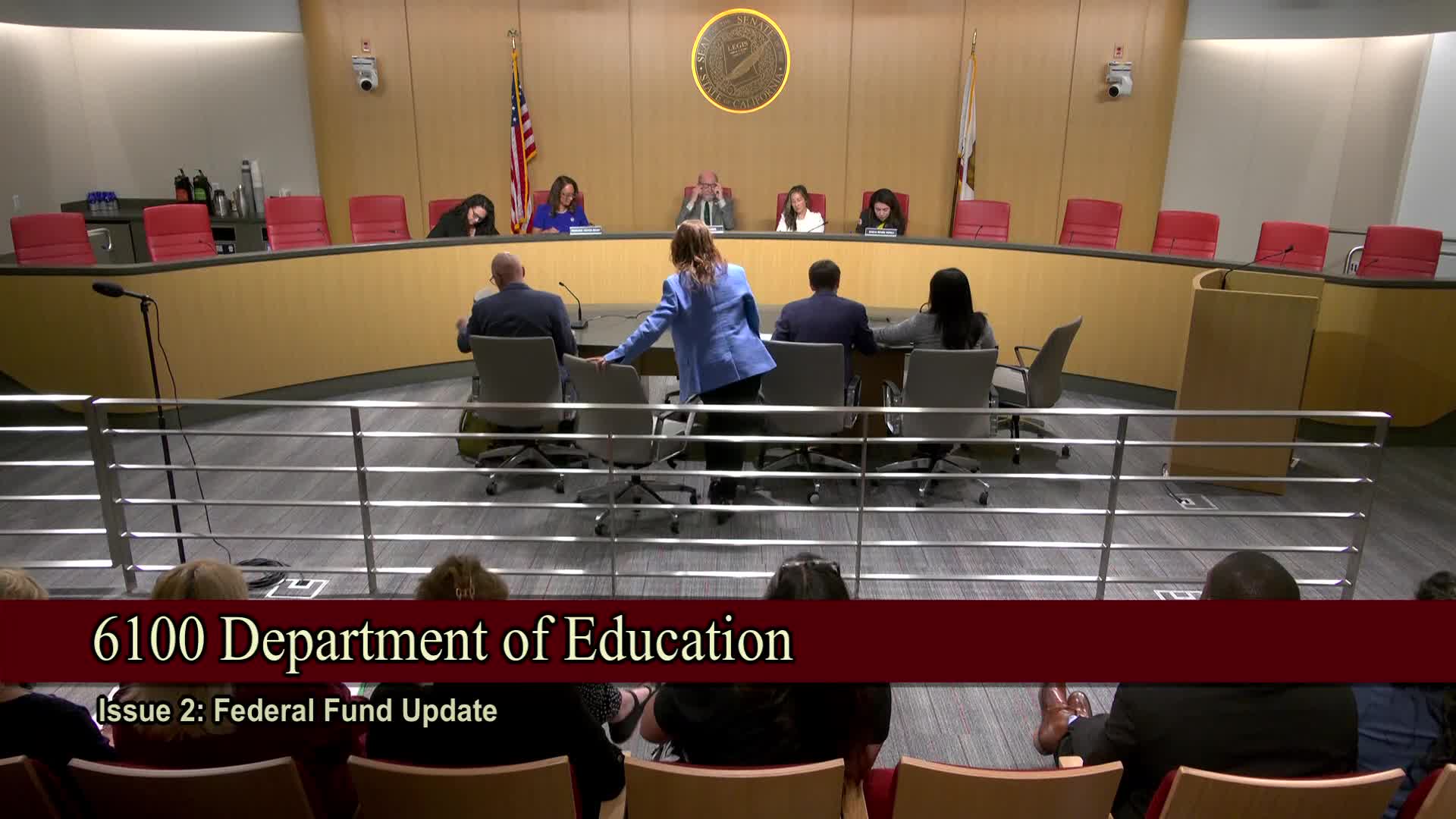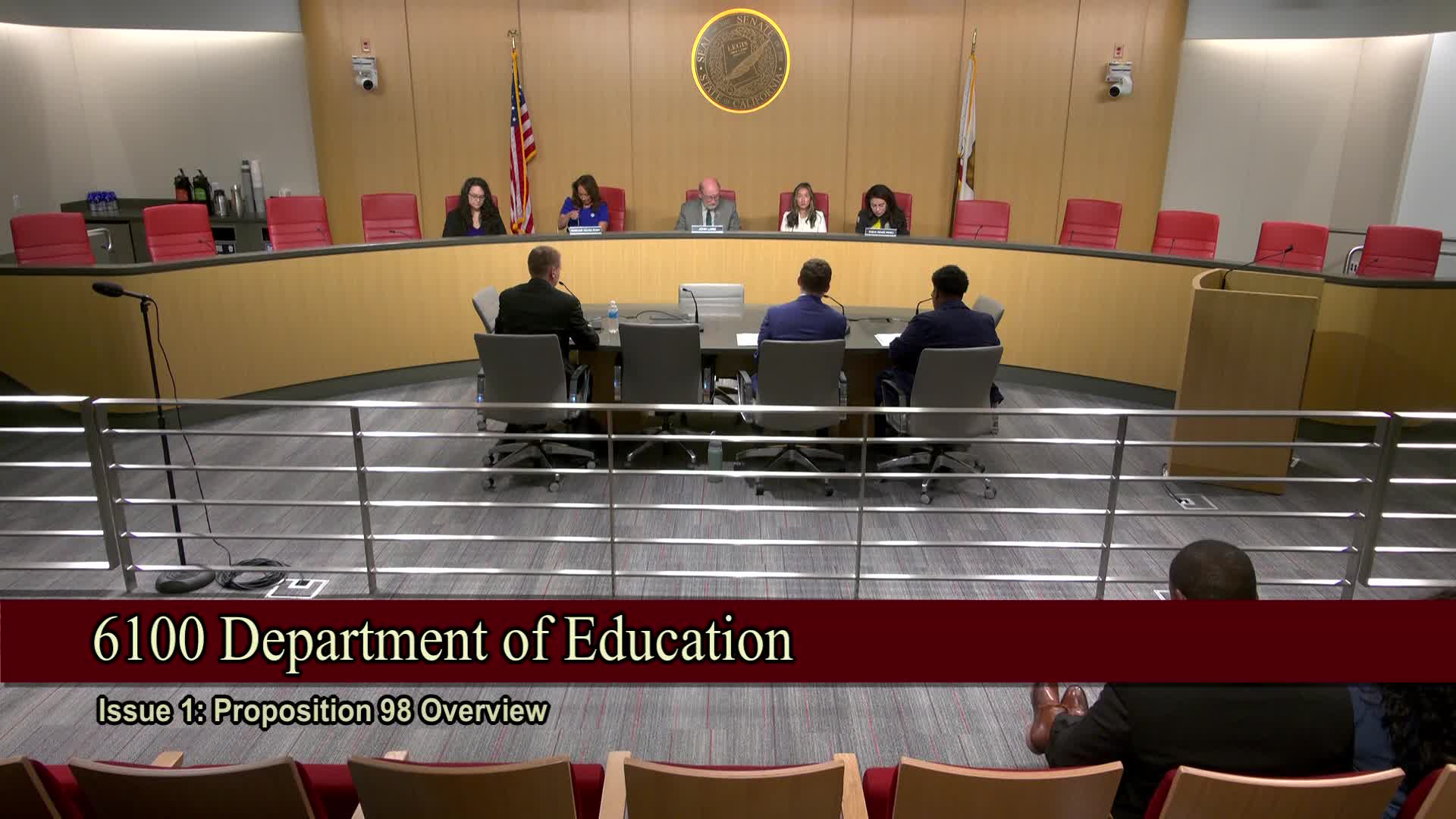Article not found
This article is no longer available. But don't worry—we've gathered other articles that discuss the same topic.

Senators press departments on readiness for universal TK, staffing and expanded-learning rollout

May Revision proposes $100M student-teacher stipends, $200M literacy PD; LAO urges different targeting

Subcommittee hears federal-funding uncertainty: delayed Education Department award tables and staff cuts complicate state planning

